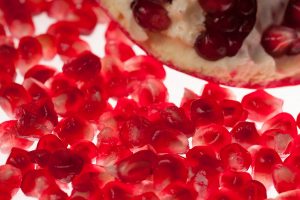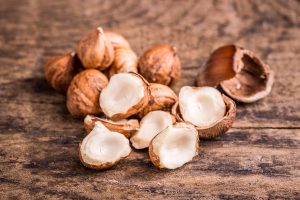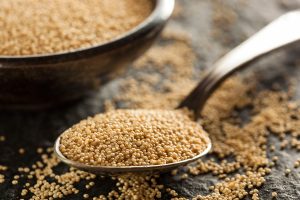
 The Red Jewel
The Red Jewel
Original to Iran, Pomegranate held an important place in ancient civilizations. It was considered the fruit of the gods. Its seeds, like polished rubies, spread to places like Greece and China, and today many of the world’s religions consider it an important symbol of abundance. The fruit is high in phytonutrients, which help reduce risk factors for cardiovascular disease. Pomegranate extract has been shown to aid in inhibiting reproduction of breast cancer cells. Given that the plant compounds in pomegranate have anti-inflammatory effects, it also helps to treat arthritis.
 Going Nuts
Going Nuts
First domesticated in Turkey (or Spain, depending on who you ask), hazelnut is very common in European diets. It can be eaten out of hand, sprinkled on salads, cooked into rice, added to vegtables or used as a spread for toast. The trees are long-lived, help prevent erosion and require relatively little treatment with pesticides and fertilizers. Oregon grows nearly all of the hazelnuts in the U.S.; globally, Turkey is the largest producer. It’s an excellent source of vitamin E, which results in beautiful skin and hair.
 Good Grain
Good Grain
It’s one of those ingredients you’ve read about but you can’t exactly explain or describe. In short, amaranth is a grain. An amazing grain, to be exact. Nestled in feathery crimson, purple or gold flower clusters atop 6-foot stalks, it’s prepared like rice, and when cooked turns into a porridge of sorts that can be combined with savory herbs and veggies. It’s a gluten-free protein that assists with blood pressure, inflammation, cholesterol levels, digestion and immunity, among many other benefits.











